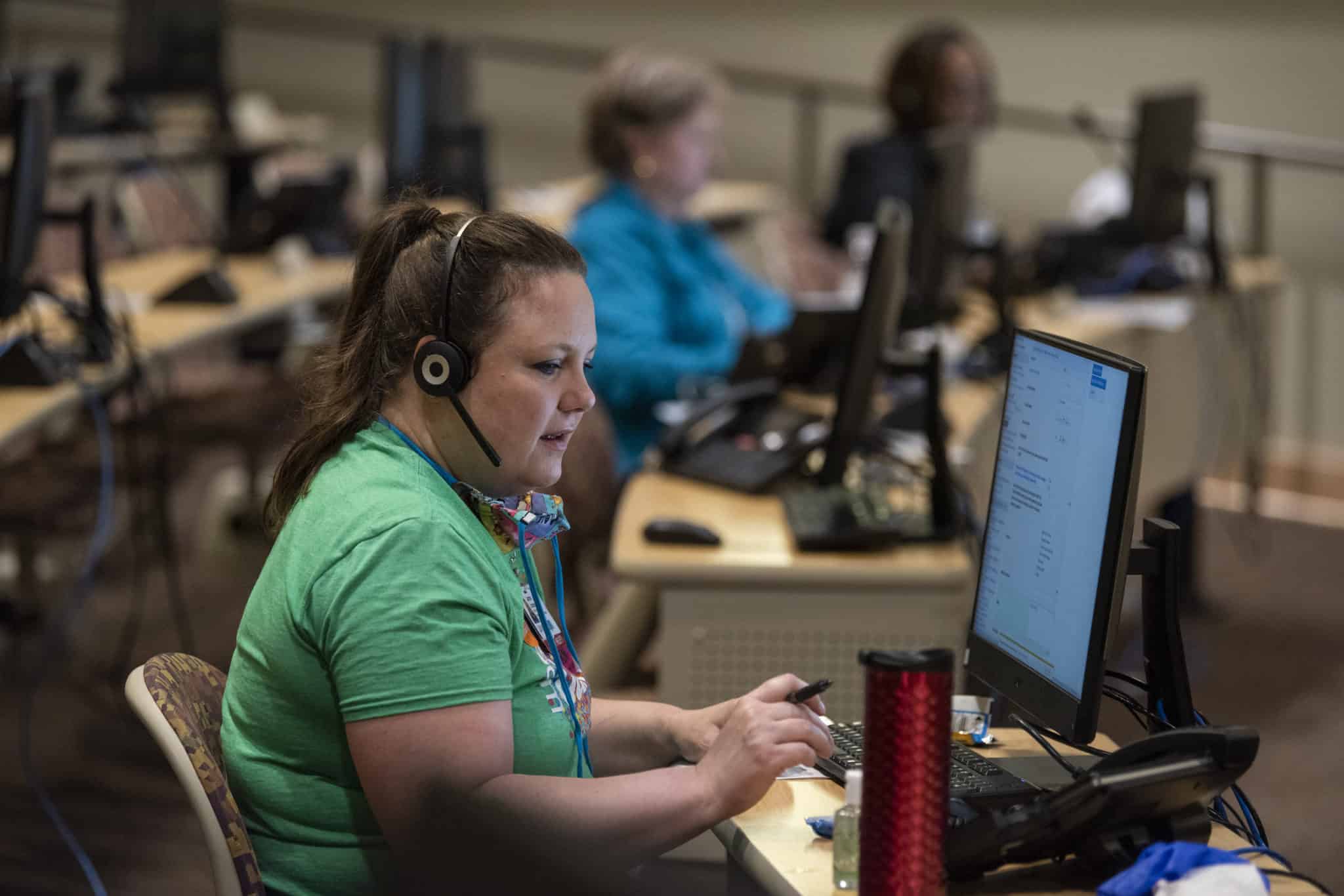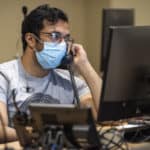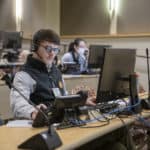View Larger Image

UAMS employees and students work the contact tracing call center.
Image by Bryan Clifton
College of Public Health Jumps into Action for COVID-19 Response
| June 2, 2020 | The UAMS Fay W. Boozman College of Public Health has established a contact tracing call center on the UAMS campus to stop the spread of the COVID-19 virus.
Contact tracing is how public health officials track the spread of an infectious disease. In this situation, if a person is confirmed to have COVID-19, they isolate themselves so they don’t spread the illness. Public health officials contact these people to help them recall who they’ve been in contact with while they were infectious. Then those people are contacted and asked to quarantine themselves to stop further spread.
Faculty, staff and students from the College of Public Health and other areas on the UAMS campus are volunteering their time to work in the center. While employees make up the bulk of those volunteers, COVID-19 has presented a unique opportunity for students to become engaged in public health efforts to stop the pandemic. The effort is spearheaded by Wendy Nembhard, Ph.D., chair of the Epidemiology Department, and Ben Amick, Ph.D., associate dean for research.
Volunteers work on one of five projects in the call center.
One project works with UAMS Student and Employee Health and the Division of Infectious Disease on employee risk assessment. Volunteers contact employees and students who have been exposed to a COVID-19 positive patient or have been put on a 14-day quarantine because they self-reported symptoms.
“We’re working with Student and Employee Health Services to contact employees and students to assess their risk quickly with the goal of getting employees back to work as soon as possible. Their health and safety and the health and safety of their co-workers at UAMS is important,” said Nembhard.
The center has collaborated with UAMS infectious disease clinicians to follow up with people from the community who have been tested for COVID-19 through the UAMS drive-thru screening on the UAMS campus and other locations around the state. Individuals are contacted to determine if their symptoms have grown worse or if they have improved. If their condition has grown worse call center volunteers encourage them to see a health care provider.
“We contact individuals at day three and day seven after visiting UAMS for follow-up,” said Nembhard, “and hope to extend the follow-up to day 14, day 28, three months, six months and 12 months.” We hope to learn how symptoms progress over time and other health issues they may be experiencing as they recover.
Further, the center has partnered with the Arkansas Department of Health to assist with conducting statewide contact tracing.
“We’re working as an extension of ADH and at their guidance,” said Amick. “We assist by contacting people across the state who have tested positive to identify their contacts and work with them on being quarantined.”
The fourth project the center is working on is the Arkansas Pandemic Poll. The college is conducting a bi-weekly pulse poll to determine how secure the general public feels in this pandemic and opinions about COVID-19. Using a sampling technique that generates telephone numbers at random, the goal is to see how opinions change over time.
The last project is a statewide survey to determine the scope of the pandemic in Arkansas. With support from the governor’s office, we will use antibody tests to determine how widespread the COVID-19 virus is among adult Arkansans.
The call center has created a great opportunity for our students, faculty and staff to participate in an pandemic.
“We have seen many students take advantage of this opportunity,” Amick said. “They’re able to get real public health practice experience and for many this is their first time getting that hands-on experience.”

